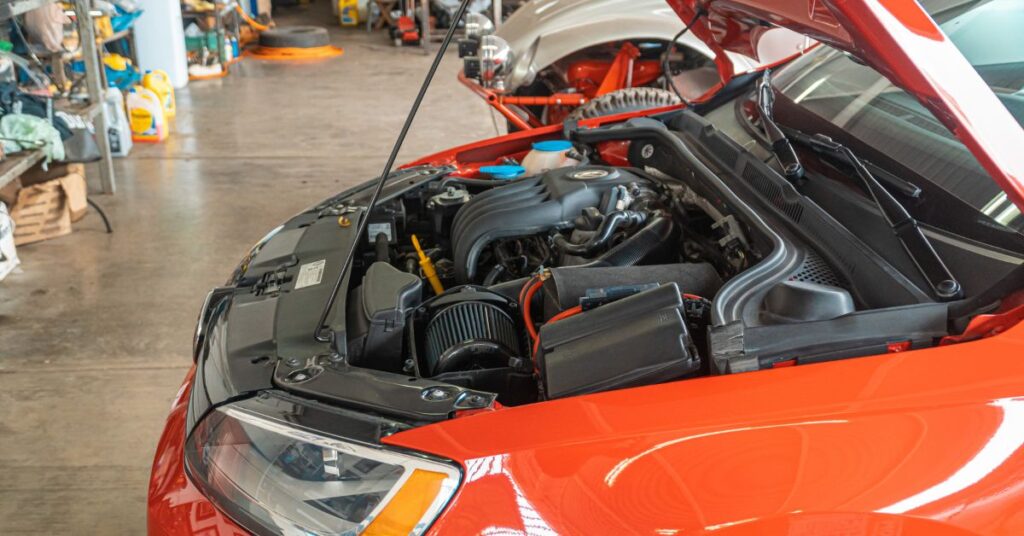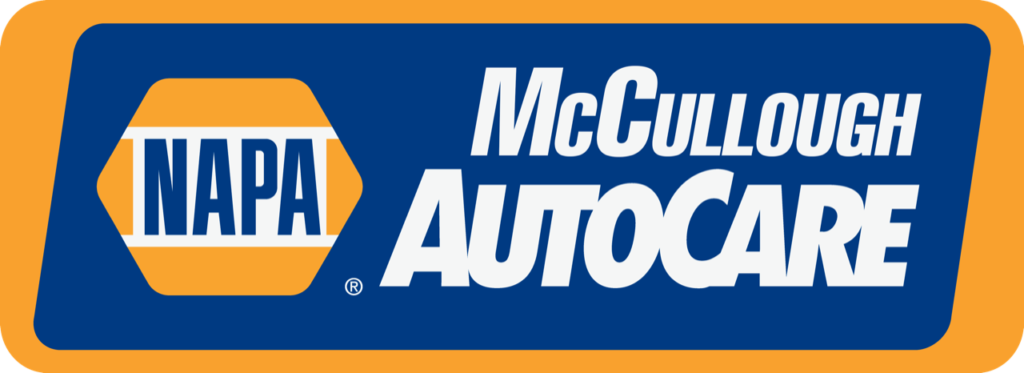
Table of Contents
If you’ve noticed that your car makes a clicking noise when accelerating, it’s understandable to be concerned. The reasons for hearing a clicking sound vary, and identifying the cause is key to solving the issue. The Ase-certified technicians at McCullough NAPA Auto Care are equipped to diagnose and address the source of the clicking sound when you accelerate and will work to ensure your vehicle runs smoothly and safely.
CV Joint Failure
The Constant Velocity (CV) joints are vital in delivering power from the transmission to the drive wheels. They are designed to maintain flexibility and handle high rotational speeds, ensuring smooth power delivery and reliable vehicle handling. Each CV joint is protected by a boot that contains grease to lubricate the joint. If this boot gets damaged or cracks, grease can leak out, and contaminants like dirt and debris can get in. This contamination and lack of proper lubrication can lead to wear and tear, which may result in a distinctive clicking noise during acceleration, especially when turning corners. As the condition of the CV joint deteriorates, this clicking noise can become more prominent and frequent.
Loose Wheel Bearings
Wheel bearings are critical for the smooth rotation of the wheels and axle. They are typically circular metal bearings located in the hub of each wheel, sitting right at the axle shaft. They consist of a set of steel balls or tapered bearings held together by a metal ring, known as a race. These bearings are enclosed within the wheel hub, allowing the wheel to rotate freely around the axle with minimal friction, contributing to a smooth and efficient wheel rotation.
Over time, these bearings may become loose or wear out, affecting their ability to hold the wheel firmly in place. When a vehicle accelerates, any looseness in the wheel bearings can make a clicking or knocking sound. This is due to the movement or play in the wheel or axle within the bearing assembly, which should typically remain stationary and secure while driving. Hearing these sounds during acceleration indicates a need for immediate inspection and potential replacement of the affected wheel bearings.
Engine or Transmission Issues
Small parts called lifters or tappets help open and close engine valves. These parts can make a clicking sound if they are not moving smoothly or if they don’t have enough oil. For cars with a manual transmission, a part known as the gear synchronizer can wear out and cause a clicking noise during gear changes and acceleration. In automatic transmissions, low fluid levels or general wear inside the transmission can also lead to similar clicking sounds, especially noticeable when you’re picking up speed.
Exhaust System Problems
The exhaust system is composed of various shields, brackets, and components – and is subject to heat expansion and continuous vibration during normal operation. Over time, these bolts and fasteners can loosen over time. Loose components can vibrate or tap against other car parts. This issue becomes more pronounced during acceleration as engine activity and vibrations increase, leading to noticeable clicking or rattling sounds.
Suspension Issues
The health of your suspension system is crucial for a smooth and safe driving experience. Components like ball joints and tie rods can wear out or become loose. A worn ball joint, for instance, might cause excessive movement of the steering knuckle, leading to clicking noises during acceleration and turning. Similarly, play in the steering system due to worn tie rods can manifest as clicking or knocking sounds, mainly when the vehicle changes speed or direction.
McCullough NAPA Can Diagnose Your Car’s Clicking Sound
If your car makes a clicking noise when accelerating, identifying and addressing the cause quickly is a must. The Ase-certified technicians at McCullough NAPA Auto Care have the expertise and equipment to accurately diagnose the source of the clicking sound. We can suggest and perform the necessary repairs to ensure your vehicle runs reliably and smoothly.
If your car is making a clicking noise when accelerating, don’t wait for the issue to escalate. Visit our shop or contact us online to schedule an appointment and get your car back in optimal condition.
FAQ About Why Your Car Makes a Clicking Noise When Accelerating
Ticking sounds when accelerating can be due to several issues, such as the wear and tear of CV joints, insufficient lubrication in the engine, or problems with the exhaust system. It often indicates a need for maintenance or repair.
While some clicking noises might be minor, it’s important to have them checked as soon as possible. Persistent clicking sounds, especially from the engine or drivetrain, can indicate serious issues that could affect your car’s safety and functionality.
Weird sounds during acceleration can be caused by mechanical issues like worn CV joints, loose wheel bearings, engine or transmission problems, or even exhaust system faults. Each sound can vary and indicates different potential problems.
A failing transmission might make noises like whining, clunking, or humming. If you hear a clicking noise when changing gears or during acceleration, it could also signal a problem within the transmission.
Yes, low oil levels can cause noise when accelerating. The engine requires sufficient lubrication; when oil levels are low, components like lifters and valves can make ticking or clicking noises due to increased friction.
Yes, it’s advisable to be concerned if your car is ticking, especially if the sound is new or has become more pronounced. A ticking sound can indicate a variety of issues, some of which might require immediate attention to prevent further damage.

